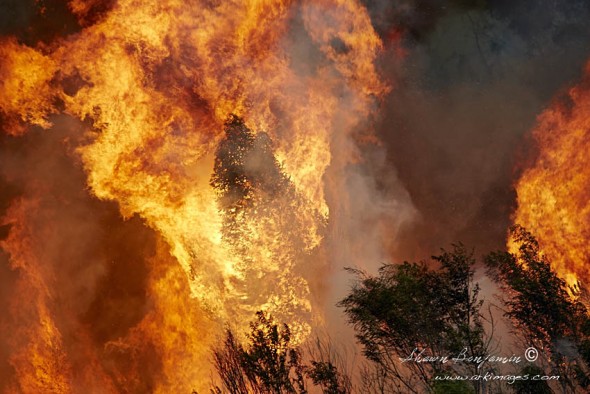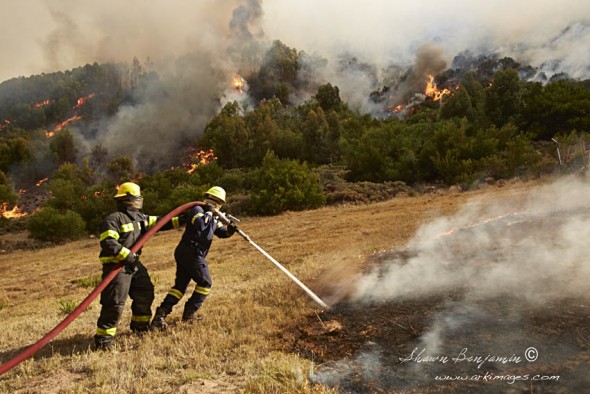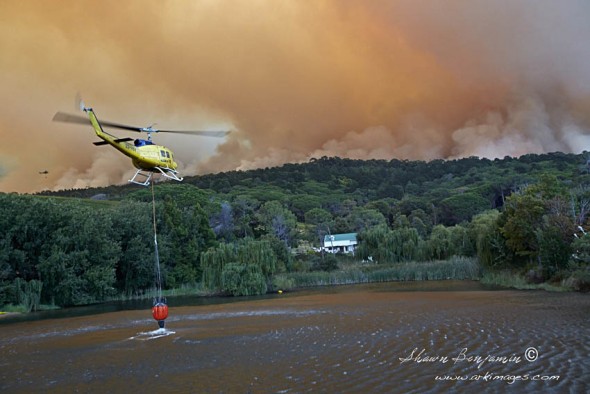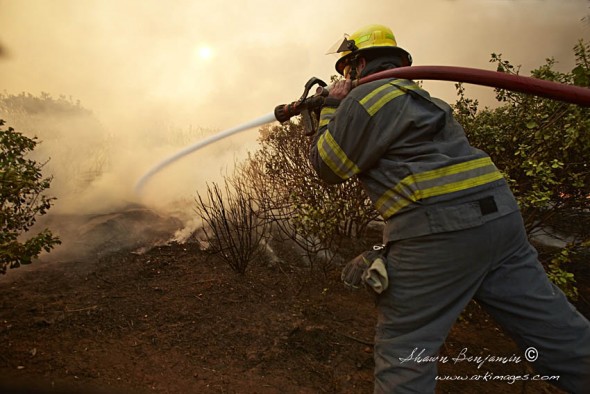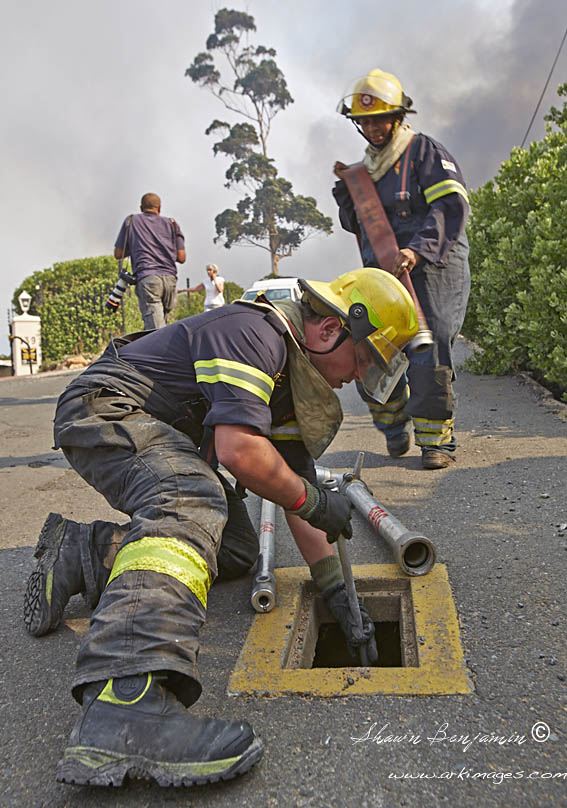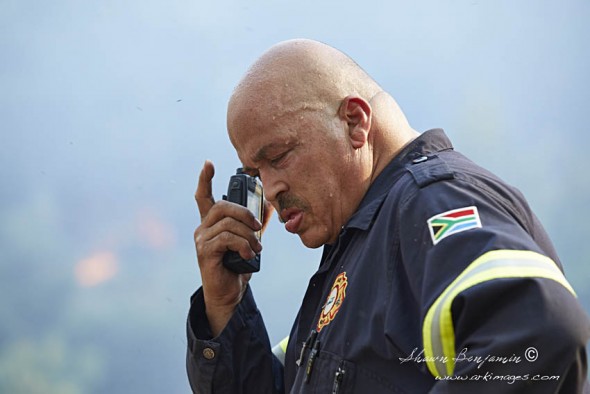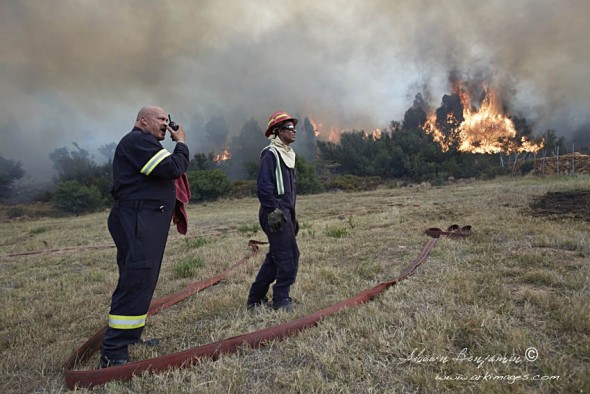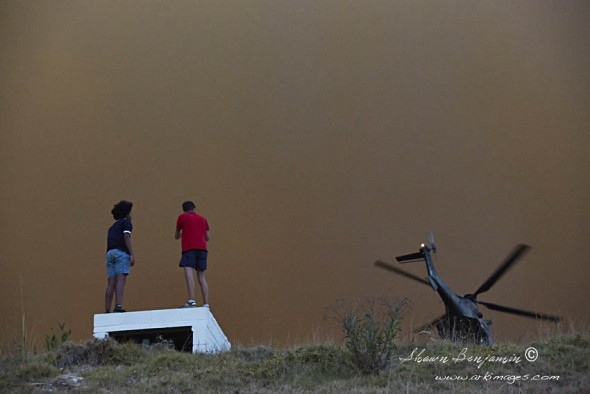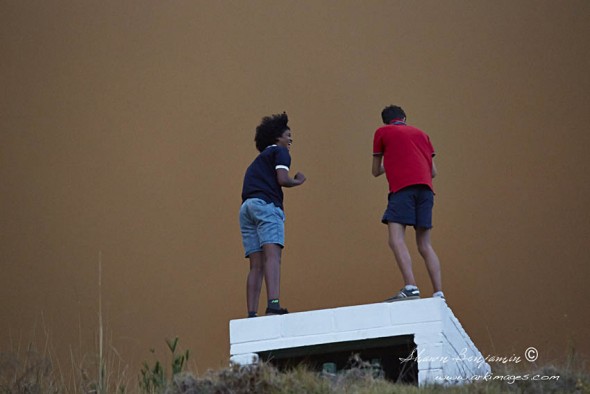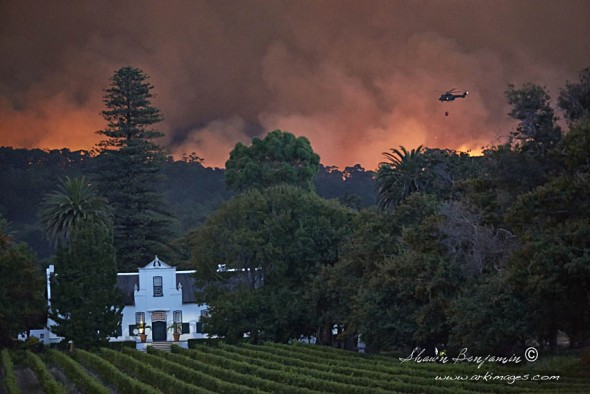
‘Apocalyptic’ Photos of #CapeFire. Photographers share their Stories
Many South Africans from around the world have said how difficult it is to be watching the #MuizenbergFire from afar, so we asked three photographers in Cape Town to allow us to share their experiences this week, so that others can feel a little closer. Thank you Tammy Lieberman, Shawn Benjamin and Andy Nix. Tammy Lieberman, Tammy […]

Many South Africans from around the world have said how difficult it is to be watching the #MuizenbergFire from afar, so we asked three photographers in Cape Town to allow us to share their experiences this week, so that others can feel a little closer. Thank you Tammy Lieberman, Shawn Benjamin and Andy Nix.
Tammy Lieberman, Tammy Lieberman Photography:
Constantia – Before (During) and After
“I took the first photo below – an iPhone photo – of the Cape Town fire from the top of Price Drive on Tuesday at 6pm. By about 2.30am the fire had reached the point where I was standing when I shot the pic. At 5am we were evacuated from our house.
“Yesterday felt apocalyptic. The fire raged on, the skies were grey and clouded with smoke and ash was falling everywhere. We stayed safe with friends (including dogs), desperately hoping that the fire wouldn’t reach our house. Our hearts are with all of the families who have lost their homes, and with the firefighters and rescue teams who continue to brave the sheer force of this fire.
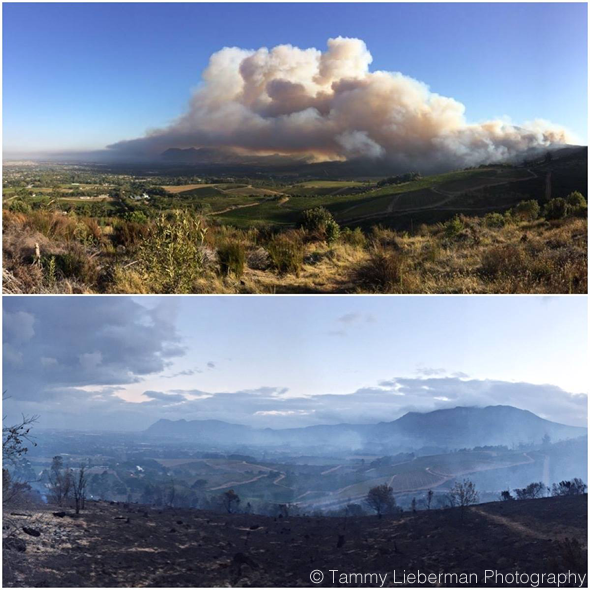
“While we’re now home safe and sound (thank goodness!!), the destruction which has been wrought has been nothing short of devastating. I went back last night to the same spot on Price Drive. Above are the before (or rather during) and after shots.”
More Photos: www.tammylieberman.com
Shawn Benjamin, Ark Images:
Although Shawn has over 30 years experience in the professional photography industry, and has photographed some of the world’s leading celebrities and politicians of our time (including the late Nelson Mandela), photographing the #MuizenbergFire this week was one of his toughest projects ever…
Documenting the Fire Fighters’ Efforts
“On Tuesday late afternoon I spent a few hours documenting the great efforts of the fire fighters. These are not easy images to post, however I hope they will give some insight to the extremes pilots, firefighters and just the average Joe who went to try extinguish this huge fire, went to.”
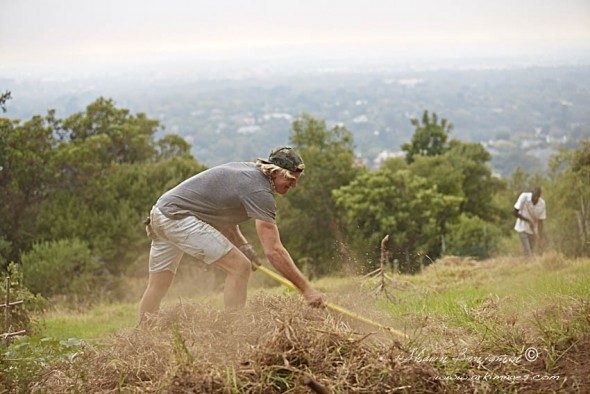
More Photos: www.arkimages.com
Andy Nix, Andy Nix Designer & Photographer:
Silvermine Fire
“On Tuesday, after burning all the way across the top of Silvermine from Muizenberg to Hout Bay, the fire came full circle on the lower slopes early in the morning to its starting point at Farmer Pecks.
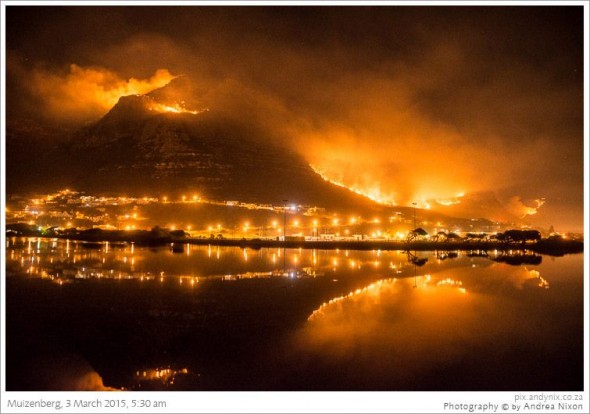
“I stopped in at the Lakeside fire station, where an exhausted yet upbeat crew related how they had been operating the only urban area fire engine, responding to a number of fires during the night (including one in Kuils River where they had to deal with rocks being thrown at them! The mind boggles!)
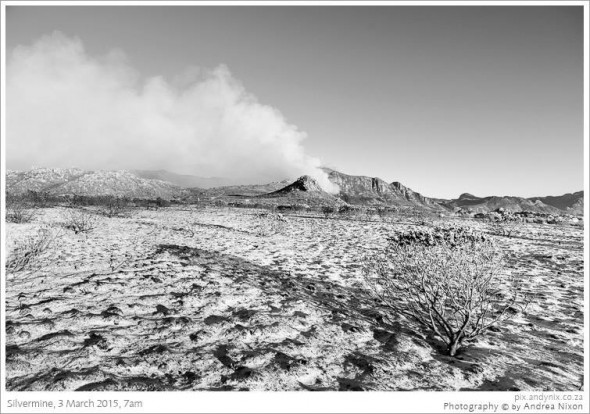
“Ou Kaapse Weg was open again and I drove up to view what the fire had left in its wake. The air was at least five degrees warmer on the mountain, and burned signposts were still smouldering, as were a number of holes in the ground where pine stumps had been (emitting an admittedly fragrant scent).
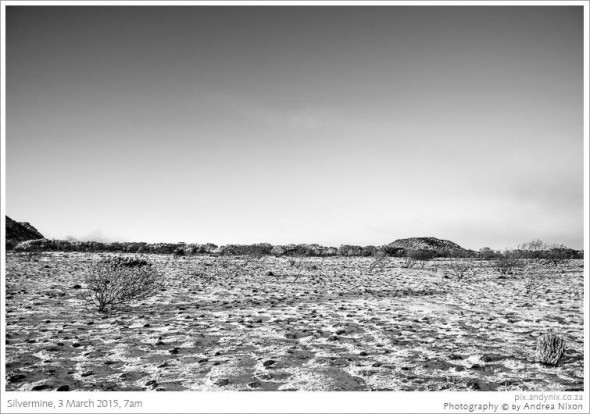
“Across the valley smoke continued to billow from the pine plantation above the Tokai Arboretum, where fire crews were stationed all night trying to contain the fire, yet slowly being forced to concede ground to the fire. Shortly after sunrise the helicopters arrived to start water bombing again.
“I spent some time looking around for signs of life, and found a few tracks of bokkies, lizards and small insects. To my surprise I could hear quite a few species of birds, and I watched a pair flitting around a bush, calling to each other. Numerous ants scurried about, but apart from them and a lone beetle, I found nothing else. Given the vast extent of the fire, I can only wonder where the wildlife would escape to, and the difficulties any survivors will face while the fynbos regenerates.
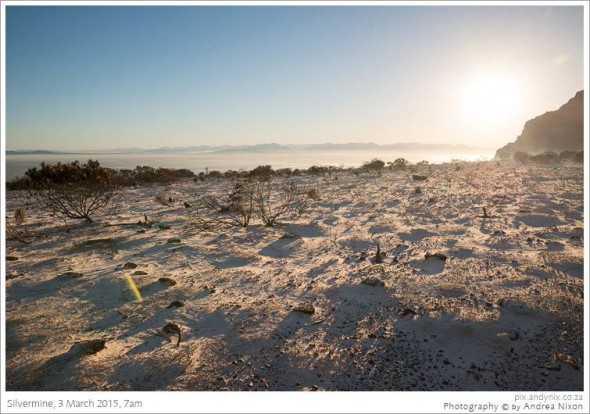
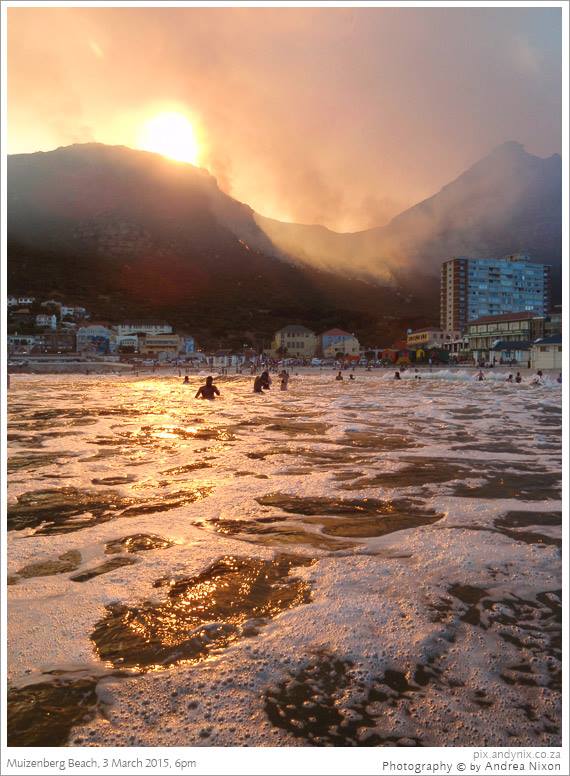
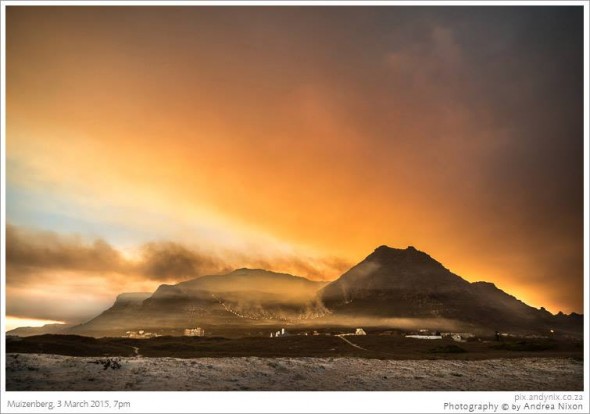
“The SPCA has requested that people nearby place shallow dishes of water in their gardens, along with seed and fruit for any refugees that make it. I know a number of vet clinics are clearing their schedules to treat any injured wildlife found in the aftermath.
“Tragic and devastating as the effects of this fire are, it’s good to remember how the mountain fauna and flora survived after the hectic fires of 2000, and hope that it will flourish again, soon. #MuizenbergFire.”
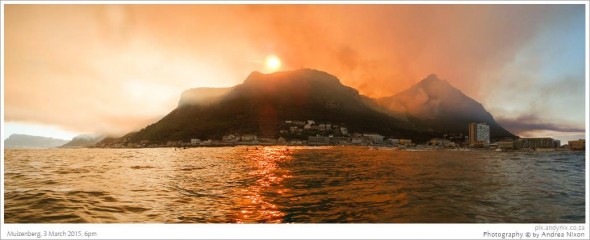
BUY A PRINT & HELP THE SPCA:
Andy is donating half of the proceeds from any sales of her fire photo prints to the SPCA (as well as half of any sales of her other prints during March). Order fire prints here.
More Photos: http://andynix.co.za
Day 5 (March 5) Update:
The DA’s Helen Zille announced this morning that it “was a good night; some rain; no flareups”. Firefighters are still managing fires in “three active areas” she said – Clovelly, Boyes Drive and Constantia. There have subsequently been some flareups. Two hours ago the Hout Bay Community Policing Forum reported that wind has brought fire over the mountain. The Operational Commander is on scene and the chopper is in the air. Bokkemanskloof, Blue Valley and Higher Meadows residents have been asked to be on high alert. Residents are asked to remain calm. No evacuation orders have been issued.
IF YOU WOULD LIKE TO HELP:
Please donate directly to Volunteer Wildfire Services: http://bit.ly/donatevws
About Fynbos and Fires
According to Table Mountain National Parks (TMNP): “Fynbos is a fire-dependent vegetation that needs to burn around every 15 years to stimulate new growth and ensure that plant and animal communities remain healthy. However, because of the proximity of houses to the TMNP, often fires that would be beneficial to the vegetation are extinguished because of the threat to human settlement. If fynbos does not burn in about 20 – 30 years it will become moribund which could result in the extinction of some species.
“On the other hand certain areas of the Park experience fire too frequently due to human intervention. This can be destructive to the ecosystem because when young fynbos (fynbos that has not yet reached seed-bearing status) burns, seed banks are depleted which can change the diversity of plant species in the area, e.g. more grass species, which could result in even more frequent fires.”
